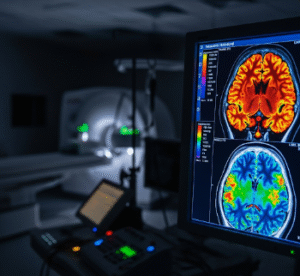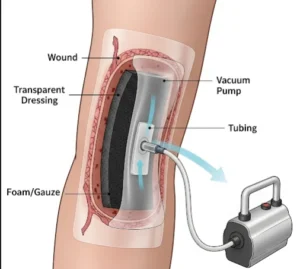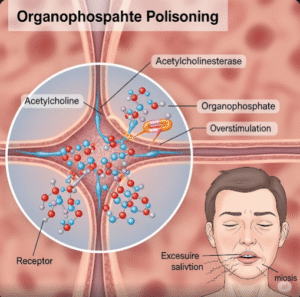Overview
Paresthesia is a medical term for abnormal sensations in the skin, often described as tingling, prickling, burning, numbness, or “pins and needles.” It commonly affects the hands, feet, arms, or legs, but can occur anywhere on the body. Paresthesia is usually a symptom of an underlying condition, rather than a disease itself, and can be temporary or chronic depending on the cause.
In Korea, paresthesia is evaluated by neurologists and specialists to identify the underlying cause—ranging from nerve compression or diabetes to neurological disorders—and to provide targeted treatment for symptom relief and prevention of further nerve damage.
Key Facts
➤ Paresthesia is the sensation of tingling, numbness, or prickling.
➤ Can be temporary (acute) or chronic (long-term).
➤ Often caused by nerve compression, neuropathy, or systemic conditions.
➤ Can occur alone or alongside other neurological symptoms, such as weakness or pain.
➤ Early diagnosis in Korea allows for management of underlying causes and prevention of complications.
What is Paresthesia?
Paresthesia occurs when nerves in the body are irritated, compressed, or damaged, leading to abnormal signals between the peripheral nerves and the brain.
➔ Common features include:
- Tingling or prickling sensations (“pins and needles”).
- Numbness or reduced sensation in affected areas.
- Burning or stinging feelings, sometimes accompanied by itching.
- Intermittent or constant occurrence, depending on the cause.
Types of Paresthesia:
- Acute or transient – often caused by temporary nerve compression, such as sitting cross-legged.
- Chronic – may be associated with nerve damage, systemic diseases, or neurological disorders.
Symptoms Related to Paresthesia
➤ Tingling or prickling sensations in hands, feet, arms, or legs.
➤ Numbness or reduced sensitivity to touch or temperature.
➤ Burning, itching, or crawling sensations under the skin.
➤ Weakness or clumsiness if motor nerves are involved.
➤ Pain or discomfort, especially at night or with prolonged pressure.
➤ Difficulty performing fine motor tasks if hands are affected.
Causes / Possible Causes
Peripheral Nerve Compression or Damage
➤ Carpal tunnel syndrome – compression of the median nerve in the wrist.
➤ Peripheral neuropathy – commonly due to diabetes, vitamin deficiencies, or toxins.
➤ Sciatica – compression of the sciatic nerve causing leg paresthesia.
➤ Herniated discs – pressing on spinal nerves can cause tingling in extremities.
Systemic or Metabolic Causes
➤ Diabetes mellitus – diabetic neuropathy is a frequent cause.
➤ Vitamin B12 deficiency – affects nerve function.
➤ Thyroid disorders – hypothyroidism can lead to nerve dysfunction.
➤ Kidney or liver disease – may result in peripheral nerve involvement.
Neurological Causes
➤ Multiple sclerosis (MS) – can produce tingling and numbness in limbs.
➤ Stroke or transient ischemic attack (TIA) – may cause sudden paresthesia on one side.
➤ Spinal cord injuries – can lead to chronic abnormal sensations.
Other Causes
➤ Medications – certain chemotherapy drugs, antibiotics, or antivirals.
➤ Infections – shingles (herpes zoster) or Lyme disease.
➤ Injury or trauma – affecting nerves or spinal cord.
➤ Prolonged pressure – sitting, leaning, or sleeping on a limb.
Risk Factors
➤ Diabetes mellitus – increases risk of peripheral neuropathy.
➤ Vitamin deficiencies, especially B12.
➤ Repetitive stress or occupational hazards – typing, heavy lifting, or manual labor.
➤ Trauma or spinal disorders – accidents, herniated discs, or fractures.
➤ Chronic medical conditions – kidney disease, liver disease, thyroid disorders.
➤ Age – risk increases with aging due to nerve degeneration.
Complications
Untreated paresthesia may lead to:
➤ Chronic pain or neuropathy affecting daily activities.
➤ Motor impairment – weakness or loss of coordination in hands or feet.
➤ Injury from reduced sensation – burns, cuts, or falls.
➤ Progressive nerve damage in conditions like diabetes or MS.
➤ Psychological impact – anxiety, frustration, or reduced quality of life.
When Should I See My Doctor?
Consult a medical professional if:
➤ Paresthesia is persistent, worsening, or spreading.
➤ Associated with weakness, loss of coordination, or sudden paralysis.
➤ Occurs after trauma, accident, or head/spinal injury.
➤ Accompanied by pain, dizziness, or visual changes.
➤ You have underlying chronic conditions like diabetes or vitamin deficiency.
Care and Treatment
Lifestyle and Home Measures
➤ Avoid prolonged pressure on limbs or nerves.
➤ Stretching and ergonomic adjustments – especially for work-related nerve compression.
➤ Balanced diet – ensure adequate vitamin B12 and nutrients.
➤ Exercise regularly – improves circulation and nerve health.
➤ Limit alcohol and toxins – which may worsen nerve damage.
Medical Treatments
➤ Address underlying conditions – diabetes, vitamin deficiency, or thyroid disorders.
➤ Medications for neuropathic pain – gabapentin, pregabalin, or topical creams.
➤ Physical therapy – improves nerve function, flexibility, and strength.
➤ Surgical interventions – for nerve compression (e.g., carpal tunnel release, herniated disc surgery).
Preventive Measures
➤ Routine monitoring of chronic conditions like diabetes.
➤ Ergonomic work setups to prevent repetitive stress injuries.
➤ Early treatment of minor symptoms to prevent chronic nerve damage.
➤ Education on recognizing warning signs of serious neurological issues.
Treatment Options in Korea
Korean healthcare facilities provide advanced care for paresthesia, including:
Diagnostic Services
➤ Electromyography (EMG) and nerve conduction studies – to assess nerve function.
➤ MRI or CT scans – to identify nerve compression, spinal issues, or brain pathology.
➤ Blood tests – check for diabetes, vitamin deficiencies, or metabolic disorders.
Therapies and Supportive Care
➤ Neuropathy management programs – medications, lifestyle counseling, and physical therapy.
➤ Surgical intervention – decompression surgeries for nerve entrapments.
➤ Pain management clinics – multidisciplinary approach for chronic paresthesia.
➤ Patient education and support – diet, exercise, and preventive strategies.
➤ Multidisciplinary care teams – neurologists, physiatrists, and rehabilitation specialists collaborating for optimal outcomes.
✅ In summary: Paresthesia is the abnormal tingling, prickling, or numb sensation often caused by nerve compression, neuropathy, or neurological disorders. In Korea, early diagnosis, targeted therapy, rehabilitation, and lifestyle interventions help reduce symptoms, prevent progression, and improve overall quality of life.













